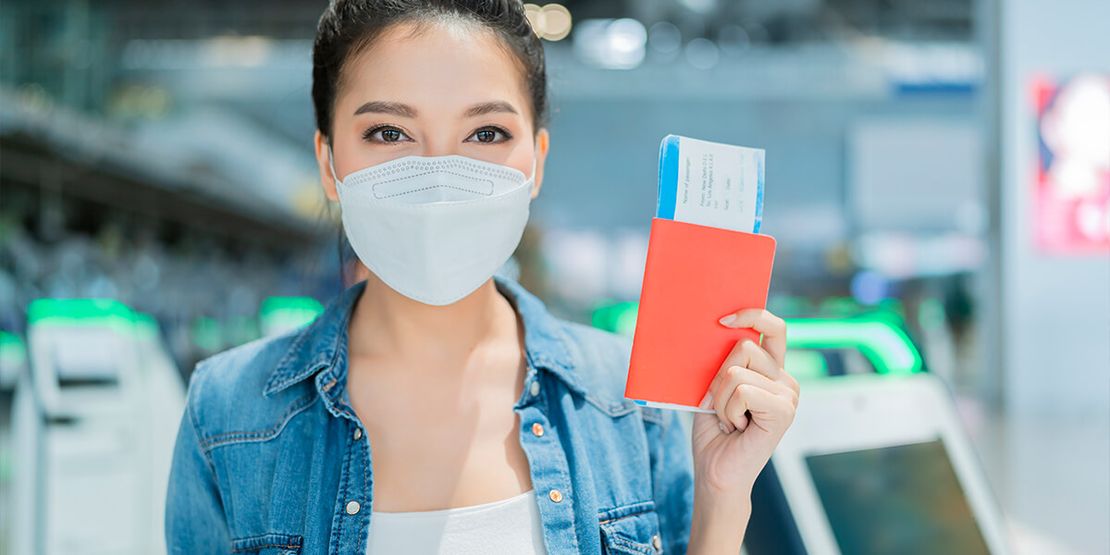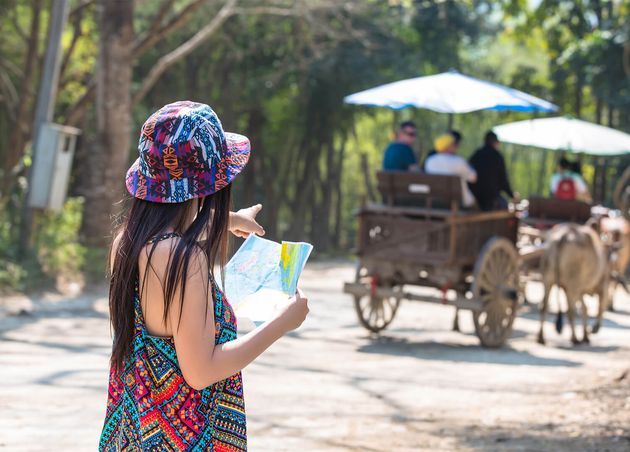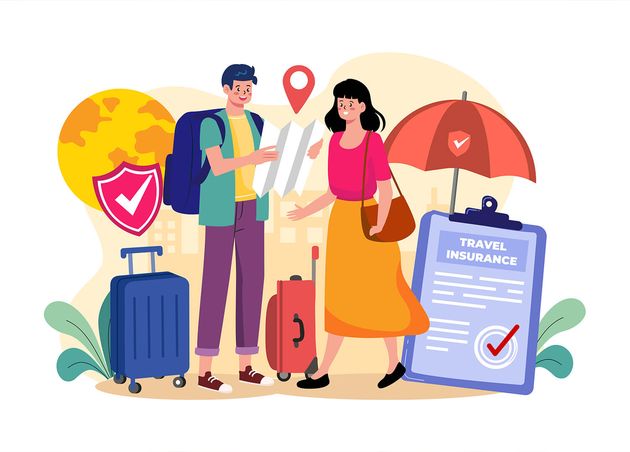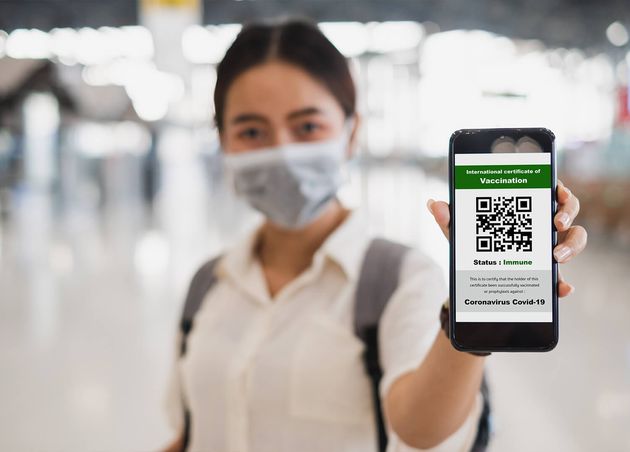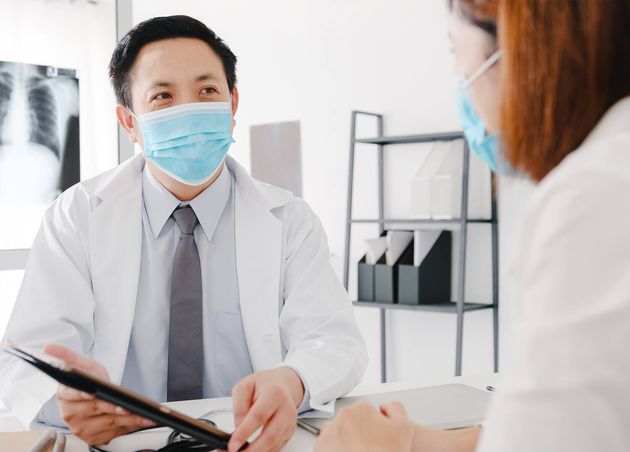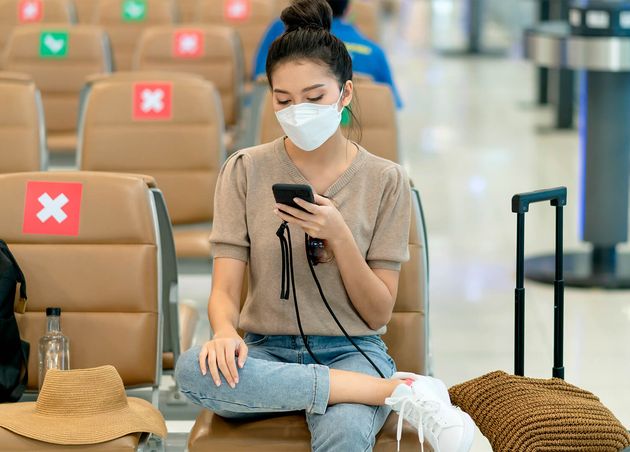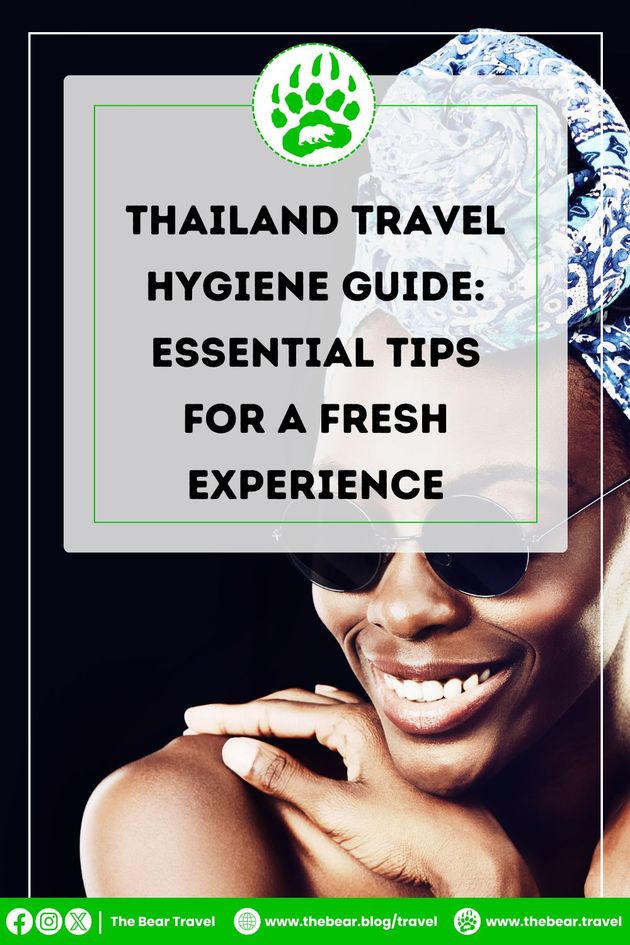Thailand Travel Hygiene Guide: Essential Tips for a Fresh Experience
Tourism is one of the main factors behind Thailand's economic expansion, propelled by its abundant natural beauty, diverse biodiversity, welcoming culture, and affordability. As travelers flock to explore its enchanting landscapes and immerse themselves in its vibrant culture, it's essential to prioritize health and hygiene.
Thailand is a fantastic place to visit and is often at the top of travelers' lists, but before boarding a plane, it is crucial to consider all potential health risks. Fortunately, traveling to and within Thailand is generally safe. Most health risks and safety challenges should be avoidable as long as tourists exercise common sense and follow the appropriate safety precautions.
In this complete Thailand travel hygiene guide, we'll dive deep into essential tips and practices to ensure a fresh and healthy experience throughout your trip. Whether you're navigating cities or exploring serene beaches, these guidelines will help you make the most of your Thai adventure while safeguarding your well-being.
🎓 Did you know?
According to SCMP, Thailand implements certified hygiene standards in its tourism-related industries.
Important Things to Do Before Visiting Thailand
You should speak with your doctor a few weeks before your trip to Thailand. This will allow them to review any associated health risks, including your medical and immunization history, before recommending any required immunizations or anti-malaria drugs.
While it is common for visitors to Thailand to be concerned about catching infectious diseases, these are considerably less common than problems like pre-existing medical ailments. Because of this, there are different health risks associated with traveling. So, each traveler must consider their unique circumstances, including their overall health, the length of their trip, their preferred mode of transportation, and their planned activities overseas.
Astute tourists can take some precautions to guarantee their health and safety when visiting and traveling through Thailand. Here are some tips and ideas to help you fully enjoy paradise.
#1 Get your first aid supplies ready.
It's a great idea for travelers to include a small medical kit in case something goes wrong. Antifungal and antibacterial lotions, antiseptics, paracetamol, antihistamines, and drugs for indigestion, fever, coughing, and stomach problems should ideally be included in the box.
Travelers with pre-existing medical illnesses are recommended to bring all their prescriptions in their original, properly labeled containers along with a signed and dated statement from their doctor outlining their conditions. It is advisable to carry double the customary dosage in case of theft or loss.
#2 Pack your hygiene kit.
Pack a travel-sized hygiene kit containing essentials like hand sanitizer, antibacterial wipes, and tissues. Include any personal hygiene products you prefer to maintain freshness throughout your journey.
#3 Stay well-hydrated and energized.
Combatting the tropical heat is essential to prevent heat-related issues. When exploring the city, prioritize staying hydrated by consuming plenty of safe drinking water and snacking fresh fruits to replenish energy levels. Be sure to carry a refillable water bottle and take regular sips, especially during tours or sightseeing, to avoid dehydration, muscle cramps, and swelling of the feet and ankles.
Ensuring the cleanliness of your drinking water is crucial for maintaining health and hygiene in Thailand. Only consume water from sealed bottles to avoid water-borne infections and digestive discomfort. Refrain from drinking water from street vendors or restaurant jugs, as their source may be uncertain. Exercise caution with ice cubes, which may have been prepared with tap water.
In Thailand, tap water is not considered safe for drinking. Opt for filtered or bottled mineral water, readily available in stores, hotels, and restaurants. Avoid adding any ice to your drinks unless you are confident in its source, as it may have been made from tap water, compromising hygiene standards.
#4 Only rent a motorbike if you are experienced.
Travelers who have never ridden a motorcycle or scooter often end up in Thailand's hospitals due to road accidents caused by defective rental bikes, inexperienced riders, and the general anarchy of the country's roads and traffic laws.
Thus, when visiting a tropical nation, visitors must choose safe transportation. For longer trips, it's best to take metered taxis; for shorter ones, tuk-tuks; and make sure you never get on a hired scooter or motorcycle without a helmet, a proper license, and the required experience.
#5 Wear sunscreen at all times.
It's also crucial for travelers to be aware of exposure to sunlight. When swimming, snorkeling, island hopping, or just taking in the sights surrounding the different cities, it is imperative to use sunscreen and to reapply it often.
Sunburn can also be prevented by wearing loose clothing, hats, and sunglasses to protect exposed skin. Because it can take some time for people to adjust to the hot, tropical climate, heat stroke is also a typical occurrence among tourists in Thailand. Some symptoms include nausea, fever, weakness, confusion, dizziness, collapse, and loss of consciousness.
#6 Obtain travel insurance.
When traveling overseas, it's always advisable to avoid caution because accidents and disasters happen, even to the young, fit, and healthy. If your health insurance won't cover medical costs incurred abroad, be careful to purchase travel insurance before departing.
This will protect you against illness and accidents from experiencing Thailand's top outdoor adventure activities, such as rock climbing, diving, etc., and incidents involving scooters or motorcycles. Before your trip, read all the tiny print about paying for medical expenses. You should also save all invoices, medical records, and evidence to make a claim.
#7 Ensure you have enough repellant against mosquitoes.
Throughout your Thailand journey, take strict precautions to avoid mosquito bites. Stay away from areas where mosquitoes breed or are abundant. Cover the actual exposed skin with long sleeves and trousers, especially when mosquitoes are most active at dawn and dusk.
Additionally, insect repellent containing DEET should be applied to exposed skin, and it should be remembered to reapply as needed according to the recommended guidelines for insect repellent usage in Thailand.
#8 Avoid stray dogs.
To minimize the risk of rabies and other potential dangers, it's wise to avoid interactions with animals, particularly stray dogs and wild monkeys, in certain areas of Thailand. Even a simple lick from an infected animal can transmit rabies, which is fatal if left untreated.
Therefore, seeking immediate medical attention after any animal bite or contact is imperative. For travelers seeking additional protection, getting vaccinated against rabies before embarking on their journey is a prudent precautionary measure.
#9 Bring clothing to shield yourself from the air conditioning.
To mitigate any health risks associated with abrupt temperature changes in Thailand, particularly due to the contrast between outdoor heat and powerful air conditioning indoors, it's advisable to bring clothing that can shield you from these fluctuations. Layering your clothing is essential and an effective strategy to adapt to varying temperatures.
Consider packing scarves, sarongs, or lightweight coats that can easily be added or removed to regulate your body temperature.
#10 Wash your hands regularly.
Hand hygiene is paramount for preventing illness, especially when bacteria abound. Given our tendency to touch our faces frequently, regular handwashing is crucial. Before eating or touching your face, wash your hands thoroughly with soap and water. Carrying hand sanitizer is also advisable for situations where handwashing facilities are unavailable.
In Thailand, tap water quality may not be suitable for drinking, but it's generally safe for handwashing and tooth brushing. So, utilize running water and soap to keep your hands clean and germ-free.
#11 Eat safely while visiting Thailand.
When dining in Thailand, it's crucial to prioritize food safety to prevent gastrointestinal issues. The country has increased food hygiene regulations to meet international standards, ensuring that many restaurants serve clean and safe food. Street food can also be enjoyed safely if it's freshly prepared and hasn't been left out in the sun or exposed to flies.
To minimize the risk and prevent any foodborne illnesses, ensure that meat or fish dishes are served hot and cooked thoroughly. Exercise caution with foods that may not have been adequately cooked, and avoid consuming salad, raw fruits, vegetables, and ice that may have been prepared with untreated tap water.
🎓 Trivia:
According to Luma Health, disposable gloves or utensils are typically used by vendors who follow good hygiene practices to keep their hands away from direct contact with cash and food.
Which Vaccines are Recommended in Thailand?
Before visiting Thailand, you should see your local healthcare provider for guidance on health matters and make sure you have all the necessary vaccines. Hepatitis A, typhoid, and tetanus vaccines are highly recommended. Additional immunizations against Diphtheria, TB, Rabies, Hepatitis B, and Japanese encephalitis may also be required if traveling to remote places.
Managing Serious Health Issues When in Thailand
Do not hesitate to see a doctor if you become injured or fall ill in Thailand. You'll be in good hands because Thailand has excellent private and public hospital network facilities. Travelers should look for the closest drugstore or find a local clinic with an English-speaking practitioner on duty for minor health concerns or issues like cold, cough, food poisoning, or infected cuts or abrasions.
Like other healthcare professionals in Thailand, these clinics provide trustworthy healthcare and advice at extremely reasonable prices. Travelers have two options for more intensive medical care: international or government hospitals. They can handle conditions including persistent fever, motorcycle accidents, severe and persistent vomiting, and other situations that are outside the purview of a physician or pharmacist.
Even though both choices provide efficient and top-notch medical care, getting an appointment can take long hours at government hospitals because they are typically crowded. To ensure you are fully informed of all the options open to you, double-check the specifics of your travel insurance before your trip.
Stay Fresh, Stay Healthy in Thailand!
Vaccines alone may not cover all health risks for travelers, necessitating additional precautions. Areas with poor sanitation and hygiene pose higher health risks, so understanding local risks and taking necessary precautions is vital.
Thailand, a popular tourist destination, has bolstered its food hygiene standards to meet international requirements. Travelers should avoid consuming raw foods, salads, and ice made with potentially contaminated tap water.
Pack essential personal hygiene items such as toothpaste, shampoo, and soap, even if they can be purchased locally. Prioritizing health and safety while traveling is paramount, and following these tips will ensure a memorable and safe trip to Thailand!
Dr. Theodore (Professor Bear)
Hi! I'm Dr. Theodore Bennet (Professor Bear), your scholarly travel companion who brings history to life with immersive tours and expert guides. With a Ph.D. in History and years of travel writing experience, I offer authoritative insights for unforgettable journeys.
The Bear Travel | Experience like a Local
A fast-growing Thailand Travel Blog written by Expats and Thais since 2017. We will share our experiences and ideas from an insider point of view for you to create your own unique Thailand experience.
For the latest news and events about The Bear Travel, follow us on Facebook, Instagram, Twitter, Pinterest, or YouTube.
For any issues, concerns, or queries, don’t hesitate to CONTACT us.
Recommended for you
Ban Amphur: An Awesome Getaway in Chonburi
The Bear Team
Fraser's Sports Bar and Restaurant: A Cool and Exciting Place in Jomtien
Tle (Hungry Bear)
Top 10 Things Chinese Should Know When Visiting Thailand
Rowan (Guinness Bear)
Thailand Golf: Silky Oak Country Club in Rayong
The Bear Team


